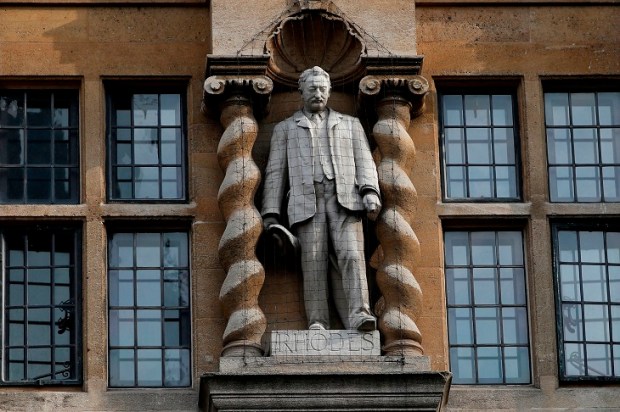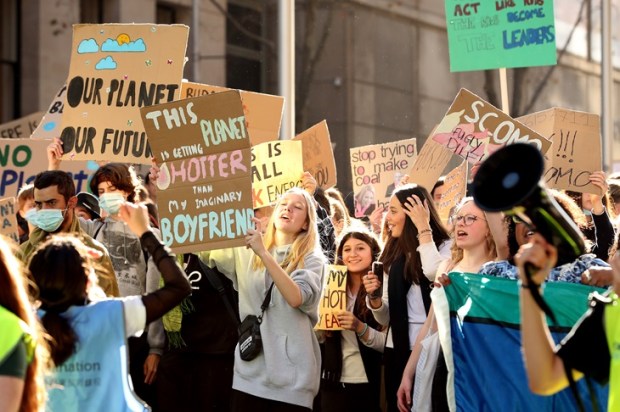Why are children and teenagers being indoctrinated with neo-Marxist-inspired radical gender and sexuality theory? Why are transwomen cancelling women’s rights to liberty and freedom? And why are Western societies awash with graphic, dehumanising pornography 24/7?
Augusto Del Noce’s chapter The Ascendance of Eroticism published in The Crisis Of Modernity provides a detailed and persuasive account of why societies like Australia are facing an ever-present threat represented by what he terms a sexual revolution.
It is a revolution where modesty and restraint no longer apply and where the prevailing ethos is one of sexual freedom and licentious self-expression. Much like the Greek tragedy The Bacchae, we now live in a Dionysian world where there are no constraints as the ultimate goal is sexual liberation.
Those old enough will remember the not-so-distant past when Playboy was sold under the counter, Michelangelo’s statue of David was covered with a fig leaf, and the play Hair achieved notoriety for daring to involve naked actors.
We now live in a time when the internet provides an incessant stream of every conceivable sexual act, sexting is common among school children, marriage no longer is defined as involving a man and a woman, and where the Nike slogan ‘if it feels good, just do it’ reigns supreme.
Del Noce begins by detailing the impact of Wilhelm Reich’s book The Sexual Revolution published in 1936. Reich, a Marxist associated with the Frankfurt School, argues capitalist society imposes control by denying one’s sexual freedom.
While classical Marxism focuses on the modes and means of production and freeing the workers from economic exploitation, Reich argues the oppressed will only be free when sexual liberation and self-autonomy are achieved.
Del Noce argues Reich ‘replaced the categories of bourgeoisie and proletariat with those of advocates of repressive morality’. Capitalist society imposes sexual anxiety and guilt and the way to freedom is to overthrow what is seen as a puritanical, life-denying ideology.
Given its belief that gender and sexuality are God-given and biologically determined and that marriage is a sacrament involving a life-long union for the purpose of procreation, it is understandable why Reich denounces the Church as an instrument of the authoritarian state.
In addition to Reich, Del Noce argues the emergence of surrealism after the second world war also explains the dramatic shift in sexual mores and practices. Del Noce quotes one of the advocates of surrealism André Breton as arguing the sexual revolution will replace:
‘…the abominable notion of Christian sin, of original fall, of redeeming love, to replace them without hesitation with the idea of a divine union of man and woman… Morality based on the exaltation of pleasure.’
Del Noce suggests the heady counter-cultural days of the late 60s and early 70s epitomised by the emergence of the Hippy movement, Woodstock, the revolt against established authority, and the arrival of the birth control pill also explain why society has become libertine in nature.
Add the emergence of the gay rights movement, second-wave feminism involving Betty Friedman and Germaine Greer, and John Money’s transgender research at John Hopkins University and it’s understandable why society has undergone such a seismic shift in sexual morality.
While there are other reasons explaining the West’s sexual revolution, including technological and medical innovations, Del Noce emphasises cultural Marxism represented by the Frankfurt School and Wilhelm Reich’s Sexual Revolution.
A striking example proving this thesis is the Safe Schools gender fluidity program widely circulated to Australian schools over the last 20 years. One of its co-designers, Roz Ward, argues the program is ‘about supporting gender and sexual diversity, not about stopping bullying’.
Ward goes on to say, ‘Marxism offers both the hope and the strategy needed to create a world where human sexuality, gender and how we relate to our bodies can blossom in extraordinary, new and amazing ways that we can only try to imagine today.’
Such is the pervasive influence of radical gender and sexuality theory the Welcome to Sex guide directed at ‘teens of all genders’ includes details about sexual acts and conversations on sexual and gender fluidity.
Primary and secondary students are also told by educators that sexuality and gender are social constructs and not biologically determined, that they have the power to self-identify as non-binary and that Australian society is heteronormative, homophobic, and transphobic.
Such is the dominance of the neo-Marxist-inspired sexual revolution that in Victoria parents, priests, doctors, and health workers face fines if they counsel children and teenagers against transitioning and in Tasmania, it’s possible to change the gender on your birth certificate.
In The Ascendance of Erotism, published in 1970, Del Noce argues he was now living in a time when the average man ‘accepts without any moral reaction displays of sexuality that a few years ago were inconceivable’. If he were alive today, he would most likely be dismayed and shocked.
Postscript: Augusto Del Noce is considered one of the most prescient and insightful philosophers and cultural critics of the 20th Century and a seminar involving his American translator Carlo Lancellotti and academic Michael Liccione was recently organised by the ACU’s PM Glynn Institute. Kevin Donnelly is a senior fellow at the PM Glynn Institute.

























